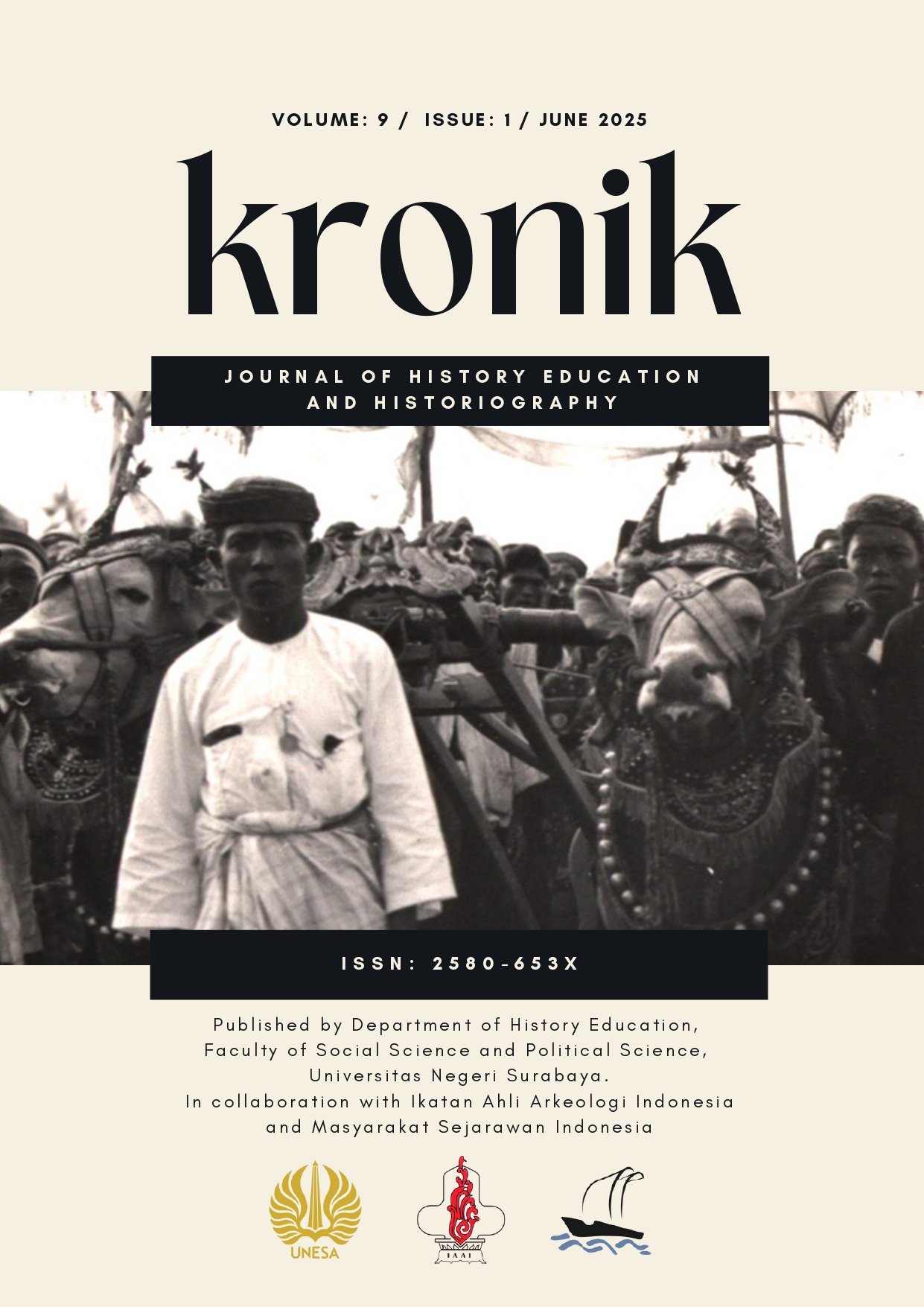MINI HISTORIOGRAPHY IN SCHOOL
ENCOURAGING STUDENTS TO BECOME YOUNG HISTORIANS
DOI:
https://doi.org/10.26740/kjhi.v9i1.42964Abstract
History education has tended to focus on the transmission of a single narrative that is factual and chronological in nature, thus ignoring the critical and constructive dimensions of the historical thought process. This article proposes a mini-historiography approach as an innovative learning strategy that encourages students to not just memorize events, but to actively construct historical narratives based on data, sources, and interpretations. Through the practice of mini historiography, students are invited to trace traces of local history, conduct field observations, interviews, and document analysis, which are then constructed in the form of historical writings or presentations. This approach not only improves critical thinking skills, historical literacy, and empathy, but also provides space for students to play the role of knowledge producers, not just consumers. This study uses a qualitative study method with classroom observation and analysis of student documents in three high schools in South Sumatra. The results show that mini historiography is able to arouse students' enthusiasm, enrich their understanding of the local historical context, and strengthen cultural identity. In addition, this approach challenges the dominance of large national narratives that often marginalize community history. By involving students as young historians, history education becomes more democratic, contextual, and meaningful. This article recommends the integration of mini-historiography into the history curriculum as a strategic step in building a generation that is historically literate and reflective of the past.
Downloads
Published
How to Cite
Issue
Section
License
Copyright (c) 2025 Universitas Negeri Surabaya

This work is licensed under a Creative Commons Attribution-NonCommercial-ShareAlike 4.0 International License.
 Abstract views: 127
,
Abstract views: 127
, PDF Downloads: 120
PDF Downloads: 120








